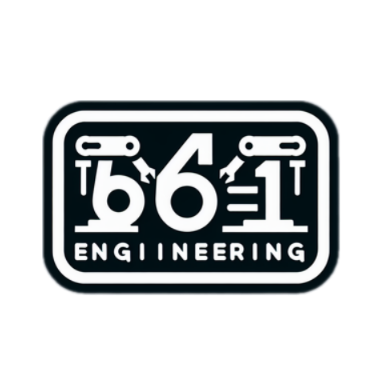Mechanical engineering is a versatile and dynamic field that combines principles of physics, mathematics, and materials science to design, analyze, and manufacture mechanical systems. As a cornerstone of engineering, mechanical engineering plays a critical role in various industries, including automotive, aerospace, robotics, and energy. For those intrigued by this discipline, getting started can seem daunting. This beginner’s guide will provide a clear roadmap on how to embark on a journey into mechanical engineering, covering educational pathways, essential skills, career opportunities, and practical steps to take.
1. Understanding Mechanical Engineering

1.1 What is Mechanical Engineering? Mechanical engineering involves the application of mechanical principles to solve problems related to forces, motion, energy, and heat. Mechanical engineers design and build systems and devices that are used in a wide range of applications, from everyday household items to advanced machinery in industrial settings.
Key Areas of Mechanical Engineering:
- Thermodynamics: Study of energy transfer and conversion.
- Fluid Mechanics: Analysis of fluids and their interactions with forces.
- Mechanics of Materials: Understanding material behavior under various conditions.
- Dynamics and Control: Study of systems’ motion and control mechanisms.
2. Educational Pathways
2.1 Pursuing a Degree in Mechanical Engineering The foundation of a mechanical engineering career is a solid educational background. Here’s a step-by-step guide:
**1. High School Preparation:
- Mathematics and Science: Focus on advanced courses in mathematics (algebra, calculus, geometry) and science (physics, chemistry).
- Extracurricular Activities: Engage in STEM-related activities, such as robotics clubs or science fairs, to build relevant skills and experience.
**2. Undergraduate Degree:
- Degree Program: Enroll in a Bachelor’s degree program in Mechanical Engineering from an accredited institution. The curriculum typically includes core courses in mathematics, physics, engineering mechanics, and materials science.
- Laboratory Work and Projects: Participate in laboratory sessions and hands-on projects to apply theoretical knowledge and gain practical experience.
**3. Graduate Education (Optional):
- Master’s Degree: Pursuing a Master’s degree can provide specialized knowledge and open opportunities for advanced roles and research positions.
- Ph.D.: For those interested in academia or high-level research, a Ph.D. in Mechanical Engineering may be pursued.
2.2 Certification and Licensing
- Professional Engineer (PE) License: In many regions, obtaining a PE license is important for career advancement. This involves passing the Fundamentals of Engineering (FE) exam, gaining relevant work experience, and passing the Professional Engineering (PE) exam.
3. Essential Skills for Mechanical Engineers

3.1 Technical Skills:
- Mathematics: Proficiency in calculus, differential equations, and algebra is crucial for solving engineering problems.
- Computer-Aided Design (CAD): Ability to use CAD software for creating detailed engineering drawings and models.
- Simulation and Analysis Tools: Knowledge of simulation tools (e.g., MATLAB, ANSYS) for analyzing and testing designs.
3.2 Soft Skills:
- Problem-Solving: Strong analytical and critical thinking skills to address engineering challenges.
- Communication: Effective communication skills to present ideas and collaborate with team members and stakeholders.
- Project Management: Ability to manage time and resources efficiently, and oversee project progress.
4. Career Opportunities in Mechanical Engineering
4.1 Industries Employing Mechanical Engineers:
- Automotive: Design and development of vehicles, engines, and manufacturing processes.
- Aerospace: Work on aircraft, spacecraft, and satellite systems.
- Energy: Focus on renewable energy technologies, power generation, and efficiency improvements.
- Robotics and Automation: Develop robotic systems and automated processes for various applications.
- Manufacturing: Involvement in designing and optimizing manufacturing systems and machinery.
4.2 Job Roles and Specializations:
- Design Engineer: Focus on designing mechanical systems and components.
- Project Engineer: Manage engineering projects from conception to completion.
- Systems Engineer: Oversee the integration of complex systems and ensure their functionality.
- Maintenance Engineer: Ensure the reliability and performance of machinery and equipment.
5. Practical Steps to Get Started
5.1 Gain Practical Experience:
- Internships: Pursue internships or co-op programs during your studies to gain hands-on experience and industry exposure.
- Extracurricular Projects: Participate in engineering clubs, competitions, or personal projects to build practical skills.
5.2 Networking and Professional Development:
- Join Professional Organizations: Engage with organizations such as the American Society of Mechanical Engineers (ASME) or the Institution of Mechanical Engineers (IMechE) to access resources and networking opportunities.
- Attend Workshops and Conferences: Participate in workshops, seminars, and conferences to stay updated on industry trends and advancements.
5.3 Stay Informed and Adapt:
- Continuous Learning: Mechanical engineering is a constantly evolving field. Stay informed about new technologies, methodologies, and industry trends through journals, online courses, and professional development programs.
- Certifications: Consider obtaining additional certifications related to emerging technologies or specific industry needs.
6. Emerging Trends and Future Directions

6.1 Smart Technologies and IoT:
- Integration of IoT: The use of Internet of Things (IoT) in mechanical systems for enhanced monitoring, control, and automation.
6.2 Sustainable Engineering:
- Focus on Sustainability: Emphasis on developing eco-friendly technologies and sustainable engineering practices to address environmental challenges.
6.3 Advanced Manufacturing:
- Additive Manufacturing: Adoption of 3D printing and additive manufacturing techniques for creating complex parts and prototypes.
7. Conclusion
Getting started with mechanical engineering in 2024 offers exciting opportunities for those passionate about solving complex problems and driving technological innovation. By pursuing a solid educational foundation, developing essential skills, and staying informed about industry trends, you can embark on a rewarding career in this dynamic field. Whether you are interested in designing cutting-edge technologies, optimizing manufacturing processes, or contributing to sustainable solutions, mechanical engineering provides a diverse range of career paths and challenges that can lead to a fulfilling professional journey.



